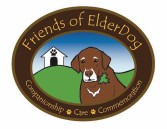Lou
1994 – 2007
By July Tancook’s wild meadows are ready for Louie. The hay and the sweet grasses are tall enough to hide him, except for his nose, held high, and his short black stub of a tail. The sun heats the land quicker than the ocean; the warm air rises off the meadows, drawing the cooler air over the sea across the island. His nose is always in the wind, searching through the light onshore breezes playing through the grasses.
Those same grasses are even better cover for the pheasants. They can nest down in a quiet, sun-filled and absolutely private place of their own. Or they can hunt through an endless maze of tunnels for wild strawberries and seeds. They can work their way through a meadow, unseen, for a whole afternoon. Sometimes, crossing an open patch or one of the trails, they leave behind a feather. You can come home, after hours of hiking, carrying three or four feathers. The only proof that you shared the meadow with ghosts.
Louie has spent the winter in the city. Endured the stink of exhaust and the sidewalk salt that stings his feet. The endless, meaningless barrage of sounds and blurred rush of lights. He comes in from his walk some nights with his feathers matted with brown, frozen slush. Sometimes, of course, there’s an interesting scent, another dog, some nicely rotting garbage, or the spoor of a raccoon. Usually the leash restrains him from exploring further. He takes it all with good grace, and waits until summer.
He knows the mid-summer routine. The bins are packed, the kayak gear comes next, and then his blanket covers the back seat of the van. For the first day he sleeps. By the second day the salt air is unmistakable. He wants to be in the front seat, head out the open window. He seems to inhale for minutes at a time, finally exhaling with an explosive sneeze. Nineteen hours on the road, and when we make the final turn off the highway to the road to the ferry, he’s standing on the seat.
Once on the island, his patience begins to run thin. Unpacking can wait, even eating can wait. The meadows can’t wait. At the start of the trails, he’s off his leash, already plotting his first meadow. Over the years he taught me so much about the marvelous nose of a Springer, about the way he could process all the incoming data that nose fed him, and, of course, he taught me about the ways of the pheasant.
Louie doesn’t enter the meadow directly. He holds the wind at his back until he’s at the bottom of the meadow, and only then does he plunge into the tall grasses. It’s hard to track him from the trail. Occasionally his whole head appears. His ears are forward, his mouth almost closed. He’s totally focused on the work at hand. He moves on unseen legs, smoothly, turning easily, gliding through the grass.
When he was beginning to teach me, I thought he forgot me the moment he entered the meadow. I would wait until he looked my way and then try to guide him with arm signals. Usually he ignored me. I came to understand that he knew how to work a field so well that he needed no guiding. When he looked to me it was to check my position. Which way to flush the bird so that it would fly toward me?
Or, better still, he would look for me to tell me what he had found. If he stopped and simply stared at me, he knew the birds were in the field, but he hadn’t located them yet. He wanted me to stay in one place. If he glanced at me while still moving, he was still looking, not yet sure the ghosts were there. And if he stopped as if frozen, with only his tail thrumming intensely, then he was on the bird. He would wait four, five seconds, watching me out of the corner of his eye, and then lunge forward.
The pheasant would explode from the grass, often with a loud, single shriek and a frantic beating of wings. Usually flying toward me. Louie would once again freeze, marking the bird’s flight. Four or five seconds, and then he would be off again, nose up, tail out, pushing through the grass on those tireless legs.
The meadows of Tancook in July are full of colour. Purples, whites, yellows, reds, along with the browns and greens of the grasses. So many scents to decipher. Wild roses, strawberries, raspberries and blueberries, goldenrod, vetch, Queen Anne’s lace, lupins, clover, timothy, and crab apples. What a marvelous nose it is that can find, amid that symphony of scents, the slight hint of sun-warmed feathers and tiny dusty feet picking through the tunnels of grass.
You will own these meadows and their ghosts forever Louie. Every summer, when we walk these trails, and another pheasant bursts out of the grasses toward us, we’ll know you’re here. Happy and free, ready to lead us through the next meadow.
Roy Thomas
